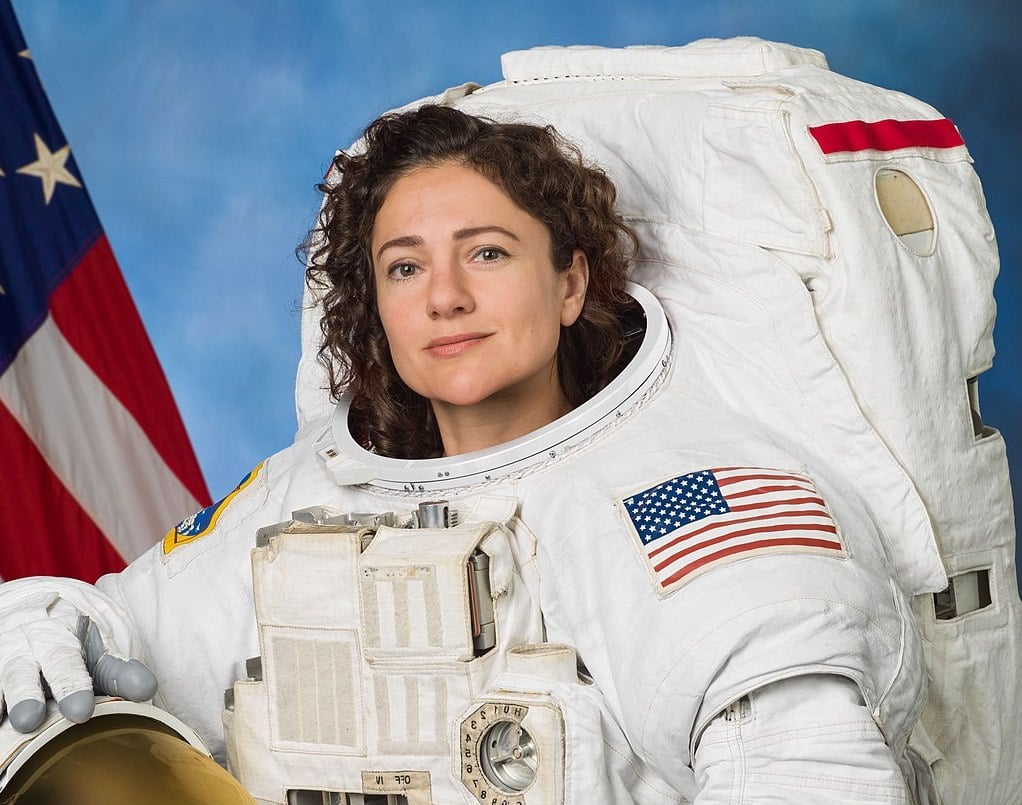This past December, an unusual message beamed to our planet from outer space. It was a selfie of a pair of feet wearing menorah-decorated socks. “Happy Hanukkah to all who celebrate it on Earth!” tweeted Jewish-American astronaut Jessica Meir from the International Space Station. Jews everywhere exulted. Three months earlier Meir had participated in the first-ever all-female spacewalk, but the first-ever Hanukkah wishes from space was nearly as well-documented by the verklempt Jewish press. Amazingly, Jessica Meir and her accomplishments are only the latest entries in a long list of Jewish astronauts and their “firsts.”
The first American Jewish man to enter the Earth’s orbit was Jeffrey Hoffman, in 1985, who packed Jewish items on every space flight: a dreidel, a menorah, a mezuzah. For his final mission, in 1996, Hoffman went a step further by taking with him a small, but very real, Torah. When the space shuttle passed over Jerusalem during Shabbat, Dr. Hoffman read from Genesis, chanting in Hebrew, “In the beginning, G-d created the heaven and the earth...” The “Space Torah” now resides in a Houston synagogue, where it’s often used for bar and bat mitzvahs.
Hoffman racked up a lot of firsts, but the first Jewish man to leave Earth’s atmosphere was Boris Volynov of Russia, who flew space missions in 1969 and 1979. And a year before Hoffman’s first flight, the first American Jew to launch into space was also the first American Jewish woman to do so: Judith Resnik, who served on the maiden voyage of Discovery in 1984. She was set to go again in 1986, on the space shuttle Challenger mission, but tragically lost her life in that disaster.
Sadly, the first and only Israeli astronaut, Ilan Ramon, also lost his life aboard a spacecraft, the Columbia, when it disintegrated during reentry following his 2003 mission. Ramon was a fighter pilot whose mother and grandmother were survivors of Auschwitz, and he keenly felt the significance of representing Israel as it launched to new heights. Among the items he took onto the space shuttle was a pencil sketch from Yad Vashem by a 16-year old who had been murdered in Auschwitz. Ramon became the first astronaut to request kosher food while in flight, even though he wasn’t normally observant; he’d also consulted a rabbi about how to keep Shabbat while in orbit, during the 90-minute window between sunsets.
Thus far 16 Jewish astronauts have served on missions to outer space. We honor them all for their courage in the name of scientific exploration. Jews in Space, you make us, and Mel Brooks, proud.



